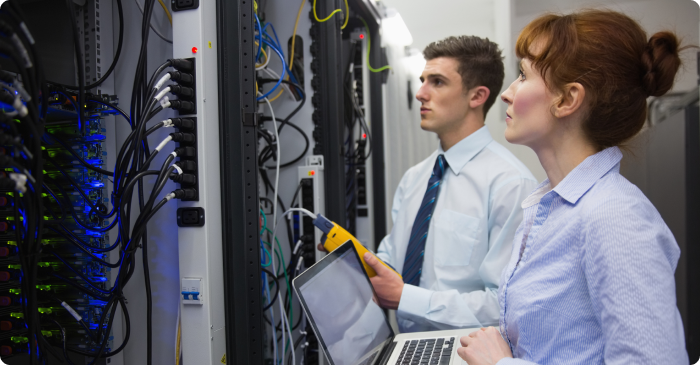Imagine that you hire a contractor to fix or maintain your company servers and the devices being used by that particular contractor are infected with malware.
Your servers will end up getting affected or even worse, some form of malware creeps into your company computers.
Now, what is the risk for you in this case?
It all depends on the type of malware that can get transferred to your devices. But none of the scenarios paint a pretty picture.
Sensitive data regarding your clients can get stolen, the passwords to important software can get leaked. Sensitive information about your firm’s financial situation can get leaked. All of these scenarios are a nightmare for any company to deal with as they will end up causing you to have to dedicate financial losses, time and manpower to fix the issues caused by these leaks.
Additionally, you can get sued by clients if their private information goes public. None of these scenarios sound like something you should put up with.
It can get even worse!
Let’s say that your firm relies heavily on your servers to set up communications with your clients and employees. If those servers were to get compromised by any means, then that would essentially bring your productivity to zero.
If your company server gets infected with malware and becomes inoperable as a result, then you will be in for a long time of diagnosing and fixing the issue.
The financial cost of the loss of productivity and the costs involved in trying to deal with the aftermath of a cyberattack is immense. This is why most of the smaller companies that get cyber attacked end up having to close their doors.
What can you do about it?
I’m sure that was scary to read. However, it’s not something that can’t be avoided.
With proper checks and balances, you can keep your firm safe from any of these cyber-attacks.
Let’s take a quick look at them.
- Have strict security policies in place
As a firm that is thinking about hiring a third-party contractor, you must have a security policy in place before you authorise their access to your companys’ equipment.
You should require your contractors to have their equipment scanned by a security software of your choice. This will ensure that you can catch any malware before it even gets close to your systems.
- Limited access
This is, of course, entirely dependent on the nature of the job that you intend to get done. But, if you need your contractor to help you with just a smaller portion of your company’s overall setup, then it makes sense to limit the access of your contractor to just that specific area.
This can be done via network segmentation or entitlement management solutions. It ensures that even if there is a breach of your cybersecurity, it is kept limited to a smaller area instead of affecting your entire equipment.
- Keep Updating
There are always new ways that cyber criminals use to attack potential targets. As such, the solutions used by you a few years ago may not be efficient against the newer threats of today.
This is why it is crucial to have an updated threat detection software in place. If your software can’t even tell that you are being attacked, then there is not much use in following the first two steps.
- Demand cyber insurance
In today’s digital landscape where work from home culture is dominating the market, even the most secure organizations get breached every day and the cyber criminals appetite is growing for small and medium sized businesses.
Once hiring a contractor you instantly double on that risk even if all security measures have been taken. You should require your contractors to have cyber insurance in place. Being covered for the financial losses caused by a cyber attack will speed up the process of your business recovery in case of a cyber incident.
So, what are the top cyber threats for contractors?
Well, now you know why you need to worry about this stuff and what steps you can take to mitigate its effects. But, it is also very important to be aware of the top cyber threats that contractors face themselves so that you can be safe from them yourself and understand what you are up against.
- Ransomware
Ransomware will encrypt the data of the device that it is attacking. This can be anything that is important for day-to-day use in your firm—things like employee data, company databases, etc.
The attackers will ask for a ransom amount for the data, and if it isn’t paid in time, the attackers threaten to delete the data or release it to the public.
- Spyware
Spyware is also a frequently used malware to get info from the victims. Spyware does not do anything directly to its victim’s devices, but it is used to track inputs such as keystrokes, microphones, etc.
Spyware is used to get important data like employee names, passwords, or data.
- Viruses
We all know about viruses.
Once a computer is infected with a virus, it can easily spread to multiple systems.
Usually, a virus will attach itself to a file, and when that particular file is launched, the virus can corrupt, delete, or encrypt that file. Essentially, it takes away your access to that file.
Viruses are particularly dangerous for servers. If a company server gets infected with a virus, it will spread to every single system that is linked with that server, essentially paralyzing your company’s devices.
